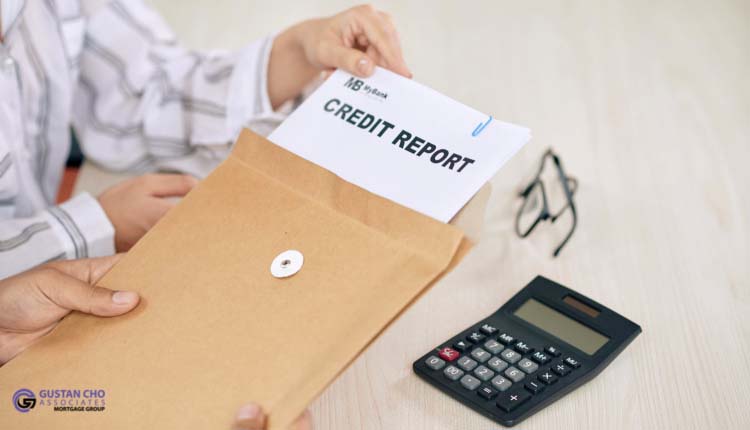Does Co-Signing Affect In Buying Home? Understanding How Co-Signing a Loan Impacts Your Future
Have you ever considered co-signing a loan for a loved one? While it might seem like a generous way to help a family member or friend, you may find yourself asking, does co-signing affect in buying home in the future? This question is crucial, especially if you plan to purchase a home yourself.
In this guide, we’ll explore how co-signing can impact your ability to buy a home, including the potential risks, benefits, and steps to minimize any negative effects.
The Basics: What Does It Mean to Co-Sign a Loan?
Co-signing means legally agreeing to take responsibility for someone else’s loan. Essentially, you’re committing to making payments if the primary borrower cannot. While co-signing might help someone qualify for a loan, it also affects your financial profile.
Importantly, does co-signing affect in buying home later? Yes, it can, as it impacts your debt-to-income ratio (DTI) and credit report, both of which are critical factors in securing a mortgage.
Thinking about co-signing a loan? Make sure you know the risks and benefits!
Protect your credit and financial future—get expert guidance before signing. Contact us today!
How Does Co-Signing Affect In Buying Home?
To address the big question, does co-signing affect in buying home? The answer is yes. Here are the primary ways it can influence your ability to purchase a home:
- Debt-to-Income Ratio (DTI): Lenders assess your DTI to determine if you can handle mortgage payments. Any co-signed loans are included in your DTI calculation, even if you’re not making the payments.
- Solution: You can exclude these payments from your DTI if you prove that the primary borrower has made payments on time for at least 12 months.
- Credit Score Impact: Co-signing can impact your credit score. When someone you co-signed for misses payments, it can hurt your score. This could mean you get higher interest rates or even face loan denials later. So, if you’re wondering, “does co-signing affect in buying home?” the answer is yes, it can definitely have consequences for your ability to get a mortgage and the terms you might receive.
- Delayed Mortgage Approval: Higher DTI or a lower credit score caused by co-signing can delay or limit your ability to qualify for a home loan.
FHA Loans and Co-Signers: Unique Considerations
If you co-sign for an FHA loan, the rules might work in your favor. FHA loans allow non-occupying co-borrowers, which means you don’t have to live on the property to co-sign. This flexibility can make it easier to navigate the impacts of co-signing.
Quick Tip: When asking, “Does co-signing affect in buying home?” remember that lenders often exclude FHA co-signed payments from your DTI if you provide proper documentation proving you’re not responsible for the payments.
Risks of Co-Signing and How to Avoid Them
Before you co-sign for someone, it’s important to consider the risks, especially if you’re hoping to buy a home soon. So, how does co-signing affect in buying home?
- Credit Damage: Your credit score can drop if the borrower misses payments.
- Increased DTI: Your borrowing capacity might decrease, making it harder to qualify for a mortgage.
- Liability for Payments: You’re legally responsible for the loan if the borrower defaults.
- Reduced Borrowing Power: Even with strong income and credit, lenders may see you as a higher-risk borrower due to the co-signed loan.
Pro Tip: To reduce the impact, consider co-signing for a short-term loan or helping the borrower refinance, removing yourself as a co-signer before you apply for your own mortgage.
Preparing to Buy a Home After Co-Signing
So, does co-signing affect in buying home in the long term? Not necessarily. If you plan carefully and ensure the primary borrower makes timely payments, co-signing might have minimal long-term effects. Here’s how to prepare:
- Document Payments: Save records proving the borrower has been making payments. After 12 months of consistent payments, lenders may exclude the co-signed loan from your DTI.
- Communicate with the Borrower: Regularly check in to ensure they’re meeting their payment obligations.
- Encourage Refinancing: Help the borrower refinance the loan by removing your name as a co-signer.
- Choose Flexible Lenders: Some lenders are more willing to exclude co-signed loans with proper documentation.
Worried about qualifying after co-signing? We’ll help you navigate your options
Apply now for expert guidance!
How to Protect Yourself When Co-Signing
If you decide to co-sign despite the potential challenges, here are steps to safeguard your finances:
- Have a Written Agreement: Clearly outline responsibilities with the borrower.
- Monitor Your Credit: Make it a habit to look at your credit report now and then to catch any mistakes or problems. If you’re wondering, “Does co-signing affect in buying home?” Remember that co-signing can help someone qualify for a mortgage, but it also means that you’re responsible for that debt, too. It can impact your credit and home-buying options, so it’s important to think it through.
- Maintain a Financial Cushion: Keep savings if you need to cover payments temporarily.
- Set Boundaries: Be upfront about expectations to avoid misunderstandings.
Alternatives to Co-Signing
If you’re still wondering, “does co-signing affect buying a home?” Remember that it can impact your credit, too. Here are some alternatives:
- Gift a Down Payment: Offer financial assistance without becoming a co-signer.
- Help Improve Their Credit: Guide the borrower on building their credit profile.
- Become a Co-Borrower: Unlike co-signers, co-borrowers share ownership and responsibilities.
Final Thoughts: Does Co-Signing Affect In Buying Home?
Co-signing a loan is an important decision that affects your ability to buy a home. However, by understanding how does co-signing affect in buying home, you can take proactive steps to mitigate the risks.
Whether it’s maintaining clear documentation, choosing flexible lenders, or encouraging refinancing, careful planning can help you achieve your homeownership goals while supporting a loved one.
If you’re thinking about how does co-signing affect in buying home, it’s a good idea to reach out to Gustan Cho Associates at 800-900-8569. We can help you understand your options and find the best loan for your needs. Our goal is to make the process easier for you!
Frequently Asked Questions About: Does Co-Signing Affect in Buying Home?
Q: Does Co-Signing Affect in Buying Home if the Borrower Pays on Time?
A: Yes, co-signing still affects your debt-to-income ratio (DTI), but if the borrower makes consistent on-time payments for at least 12 months, lenders may exclude that loan from your DTI calculation.
Q: Will Co-Signing Hurt My Credit if I’m Not Making Payments?
A: Your credit score should stay good if the primary borrower makes timely payments. However, missed payments can significantly hurt your credit score and lead to problems.
Q: Does Co-Signing Affect in Buying Home if I’m Planning to Purchase Soon?
A: Yes, co-signing can temporarily limit your borrowing capacity due to the impact on your DTI and credit report. Planning ahead and documenting the borrower’s payments can help minimize this.
Q: How Long Should I Wait to Buy a Home After Co-Signing?
A: Waiting at least 12 months with proof of on-time payments by the borrower can improve your chances of qualifying for a mortgage.
Q: Can I be Removed as a Co-Signer to Improve My Chances of Buying a Home?
A: The primary borrower can refinance the loan to remove your name as a co-signer, which will release you from financial responsibility.
Q: Does Co-Signing Affect in Buying Home if I Co-Sign on a Car Loan Instead of a Mortgage?
A: Absolutely, any loan that has a co-signer—be it a car loan, personal loan, or mortgage—will influence your credit report and debt-to-income ratio, which in turn affects your chances of qualifying for a home loan.
Q: How Can I Protect Myself When Co-Signing a Loan?
A: Monitor your credit regularly, document the borrower’s payments, and maintain a financial cushion to cover payments if needed.
Q: Are There Alternatives to Co-Signing that won’t Affect My Ability to Buy a Home?
A: Yes, you can provide a financial gift for the down payment, help the borrower improve their credit, or become a co-borrower instead of a co-signer.
Q: Does Co-Signing Affect in Buying Home if the Borrower Misses Payments?
A: Missing payments can hurt your credit score. This can make it harder to get a mortgage.
Q: Can Lenders Overlook Co-Signed Loans Ahen I Apply for a Mortgage?
A: Some lenders may exclude co-signed loans from your DTI if you provide documentation showing the borrower has made consistent payments for 12 months.
This blog about “Does Co-Signing Affect In Buying Home In The Future” was updated on January 27th, 2025.
Yes! You can still qualify for a mortgage after co-signing
Let’s explore your best financing options—apply today!










